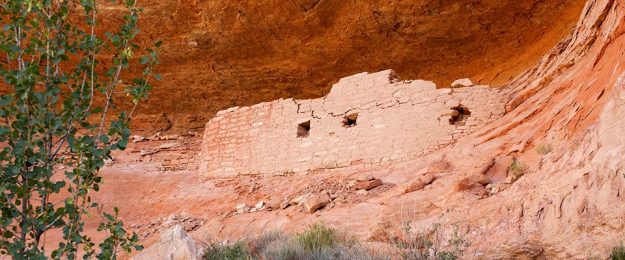Widgetized Section
Go to Admin » Appearance » Widgets » and move Gabfire Widget: Social into that MastheadOverlay zone
As Trump targets monuments, Colorado Public Lands Day ramps up

Canyons of the Ancients National Monument.
Colorado’s conservation community on Monday announced a slew of celebrations on Saturday, May 20, to commemorate Colorado Public Lands Day — a holiday spearheaded by Vail native and Democratic state Sen. Kerry Donovan.
Meanwhile, the Trump administration continues to push for less federal control over public lands in Colorado despite overwhelming public support for the current system of management.
Trump recently signed an executive order pushing for review of all national monuments designated by presidential decree since 1996 — a move condemned by some Colorado Democrats and praised some Republicans, including U.S. Rep. Scott Tipton.
Here’s a press release from Conservation Colorado on the May 20 Colorado Public Lands Day events:
Conservation Colorado and its partners have announced plans for celebrating the first-annual Colorado Public Lands Day, which will occur on Saturday, May 20th.
Ninety-five events are currently planned across the state, with more being added weekly. A map of all events can be found here, and highlights include:
- “Governor Hickenlooper Celebrates Colorado Public Lands Day,” Grand Junction Off-Road Bike Race main stage, 12:00 PM, Grand Junction
- “The Future of Public Lands” featuring U.S. Congressman Ed Perlmutter and the band Elephant Revival, American Mountaineering Center, 5:00 PM, Golden
- Events in Denver’s urban parks including Montbello Day of Beauty, 10:00 AM, and BBQ at Silverman Park, 12:00 PM
- Party and live music, Powerhouse Science Center, 6:00 PM, Durango
- Celebration featuring Colorado Public Lands Day architect state Senator Kerry Donovan, High Alpine Brewery, 5:00 PM, Gunnison
Eight special beers are being brewed by Colorado breweries to celebrate various aspects of public lands. Broken Compass’ spruce tip IPA, for example, pays homage to the mountains of Breckenridge, while Kannah Creek Brewing Company’s “Monument Irish Red” honors Colorado National Monument.
In addition, renowned Colorado-based band Elephant Revival is sponsoring a public lands trail cleanup on May 12th. The band has been dubbed the “official sound” of Colorado Public Lands Day 2017, and is hosting a contest to win free tickets to their show at Red Rocks on Sunday, May 21st, for anyone who helps promote Colorado Public Lands Day.
In May 2016 Colorado became the first state in the nation to establish a holiday recognizing the value of public lands to our state. The bill passed with bipartisan support and was signed into law by Governor Hickenlooper. Colorado Public Lands Day will occur on the third Saturday in May each year.
More information about all of the events can be found at copubliclandsday.com.
And here’s a release from Congressman Tipton, who represents much of the state’s Western Slope, where some of the most iconic public lands are located:
Hi, this week in the Natural Resources Federal Lands Subcommittee, I had the opportunity to talk about the importance of the legislative process in national monument designations, and the unintended consequences of executive overreach of the Antiquities Act.
The Antiquities Act was signed into law in 1906, when vandals and robbers were looting Native American burial grounds and archeological sites throughout the Southwest territories. The law specified that national monuments “be confined to the smallest area compatible with proper care and management of the objects to be protected,” and the president could only designate monuments “upon the lands owned or controlled by the Government of the United States.”
In recent decades, presidents have used the Antiquities Act outside of its original intended purpose. Antiquities Act designations without public input or consensus have led to many consequences for people who live in the impacted regions. Local communities shoulder the greatest burdens when a president unilaterally decides to designate a monument, all too often facing restricted access to long-time land uses, lost economic and conservation opportunities, and increased strain on local public safety and infrastructure resources. Many of these impacts could have been reduced with greater public engagement and by working through the legislative process.
With the support of communities in Western Colorado and a bipartisan group of colleagues, I passed a bill designating Chimney Rock as a national monument in the 112th Congress. When this bill did not receive a vote on the Senate floor, President Obama used the Antiquities Act to designate the monument. This designation had extensive local input and support behind it that was built as we worked through the legislative process.
It’s important that we protect our national treasures and work with the local communities who have taken care of them for so long.


